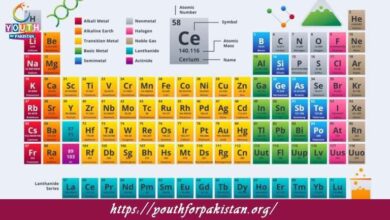12th Class Physics Chapter 16 MCQs with Answers

Prepare thoroughly for Alternating Current (AC) with 12th Class Physics Chapter 16 MCQs. Topics include AC circuits, RMS values, and power factor. Trending terms like alternating current quiz, AC circuit MCQs, and physics power factor test enhance learning and rankings.
What is the frequency of the alternating current (AC) supplied to most households in the
United States?
a) 50 Hz
b) 60 Hz
c) 50 kHz
d) 60 kHz
In an AC circuit, the current:
a) Always flows in one direction
b) Always flows in the opposite direction
c) Reverses direction periodically
d) Remains constant over time
The peak value of an AC voltage is 100V. What is its root mean square (RMS) value?
a) 50V
b) 70.7V
c) 100V
d) 141.4V
In an AC circuit, the power is calculated using the:
a) Peak voltage
b) Peak current
c) RMS voltage
d) RMS current
What is the phase difference between the voltage and current in a purely resistive AC
circuit?
a) 0 degrees
b) 45 degrees
c) 90 degrees
d) 180 degrees
In an AC circuit, the impedance of a pure inductor is proportional to the:
a) Frequency of the AC
b) Amplitude of the AC
c) Phase difference between voltage and current
d) Resistance of the circuit
What is the phase difference between the voltage and current in a purely inductive AC
circuit?
a) 0 degrees
b) 45 degrees
c) 90 degrees
d) 180 degrees
Which component of an AC circuit leads to energy dissipation and heating?
a) Capacitor
b) Inductor
c) Resistor
d) Transformer
What is the phase difference between the voltage and current in a purely capacitive AC
circuit?
a) 0 degrees
b) 45 degrees
c) 90 degrees
d) 180 degrees
In an AC circuit, the impedance of a pure capacitor is inversely proportional to the:
a) Frequency of the AC
b) Amplitude of the AC
c) Phase difference between voltage and current
d) Resistance of the circuit
What is the relationship between the peak voltage (Vp) and the RMS voltage (Vrms) in an
AC circuit?
a) Vp = Vrms
b) Vp = 2 * Vrms
c) Vp = √2 * Vrms
d) Vp = √3 * Vrms
In an AC circuit, the power factor is the cosine of the angle between:
a) Voltage and resistance
b) Voltage and current
c) Current and resistance
d) Voltage and reactance
Which type of circuit consists of both resistive and reactive elements in an AC circuit?
a) Series circuit
b) Parallel circuit
c) RLC circuit
d) Purely resistive circuit
What is the relationship between the capacitive reactance (X
c) and the frequency (f) in an
AC circuit?
a) Xc = 1/f
b) Xc = f
c) Xc = f^2
d) Xc = √f
What is the unit of capacitive reactance (X
c)?
a) Ohm
b) Henry
c) Farad
d) Siemens
What is the relationship between the inductive reactance (XL) and the frequency (f) in an
AC circuit?
a) XL = 1/f
b) XL = f
c) XL = f^2
d) XL = √f
What is the unit of inductive reactance (XL)?
a) Ohm
b) Henry
c) Farad
d) Siemens
What is the total impedance of a series RLC circuit?
a) The sum of resistive, capacitive, and inductive impedances
b) The product of resistive, capacitive, and inductive impedances
c) The difference between resistive, capacitive, and inductive impedances
d) The reciprocal of resistive, capacitive, and inductive impedances
In an AC circuit, when the resistance is equal to the reactance, the power factor is:
a) 0
b) 1
c) √2
d) 2
What is the power factor of an AC circuit with purely resistive elements?
a) 0
b) 0.5
c) 1
d) √2
What is the power factor of an AC circuit with purely inductive elements?
a) 0
b) 0.5
c) 1
d) √2
What is the power factor of an AC circuit with purely capacitive elements?
a) 0
b) 0.5
c) 1
d) √2
Which component is used to improve the power factor of AC circuits?
a) Capacitor
b) Inductor
c) Resistor
d) Transformer
The phase difference between the voltage and current in a purely resistive AC circuit is:
a) 0 degrees
b) 45 degrees
c) 90 degrees
d) 180 degrees
The phase difference between the voltage and current in a purely capacitive AC circuit is:
a) 0 degrees
b) 45 degrees
c) 90 degrees
d) 180 degrees
The phase difference between the voltage and current in a purely inductive AC circuit is:
a) 0 degrees
b) 45 degrees
c) 90 degrees
d) 180 degrees
In an AC circuit, the impedance of a pure capacitor is:
a) Directly proportional to the capacitance and inversely proportional to the frequency
b) Inversely proportional to the capacitance and directly proportional to the frequency
c) Directly proportional to both capacitance and frequency
d) Inversely proportional to both capacitance and frequency
In an AC circuit, the impedance of a pure inductor is:
a) Directly proportional to the inductance and directly proportional to the frequency
b) Inversely proportional to the inductance and directly proportional to the frequency
c) Directly proportional to both inductance and frequency
d) Inversely proportional to both inductance and frequency
What is the name of the process in which an alternating current changes its direction periodically?
a) Polarization
b) Induction
c) Oscillation
d) Reversal
In an AC circuit, the voltage across a resistor and an inductor are 90 degrees out of phase. What type of circuit is this?
a) Series RLC circuit
b) Parallel RLC circuit
c) Purely resistive circuit
d) Purely inductive circuit
The peak value of an AC current is 5A. What is its RMS value?
a) 3.5A
b) 5A
c) 7.07A
d) 10A
What is the unit of inductance?
a) Ohm
b) Henry
c) Farad
d) Siemens
What is the unit of capacitance?
a) Ohm
b) Henry
c) Farad
d) Siemens
The phase difference between the voltage and current in a purely resistive AC circuit is:
a) 0 degrees
b) 45 degrees
c) 90 degrees
d) 180 degrees
The phase difference between the voltage and current in a purely capacitive AC circuit is:
a) 0 degrees
b) 45 degrees
c) 90 degrees
d) 180 degrees
The phase difference between the voltage and current in a purely inductive AC circuit is:
a) 0 degrees
b) 45 degrees
c) 90 degrees
d) 180 degrees
In an AC circuit, the impedance of a pure capacitor is:
a) Directly proportional to the capacitance and inversely proportional to the frequency
b) Inversely proportional to the capacitance and directly proportional to the frequency
c) Directly proportional to both capacitance and frequency
d) Inversely proportional to both capacitance and frequency
In an AC circuit, the impedance of a pure inductor is:
a) Directly proportional to the inductance and directly proportional to the frequency
b) Inversely proportional to the inductance and directly proportional to the frequency
c) Directly proportional to both inductance and frequency
d) Inversely proportional to both inductance and frequency
What is the name of the process in which an alternating current changes its direction periodically?
a) Polarization
b) Induction
c) Oscillation
d) Reversal
In an AC circuit, the voltage across a resistor and an inductor are 90 degrees out of phase. What type of circuit is this?
a) Series RLC circuit
b) Parallel RLC circuit
c) Purely resistive circuit
d) Purely inductive circuit
The peak value of an AC current is 5A. What is its RMS value?
a) 3.5A
b) 5A
c) 7.07A
d) 10A
What is the unit of inductance?
a) Ohm
b) Henry
c) Farad
d) Siemens
What is the unit of capacitance?
a) Ohm
b) Henry
c) Farad
d) Siemens
In an AC circuit, the power factor is the ratio of:
a) Active power to apparent power
b) Reactive power to active power
c) Apparent power to reactive power
d) Active power to reactive power
Which device is used to improve the power factor in AC circuits?
a) Transformer
b) Inductor
c) Capacitor
d) Resistor
In an AC circuit, the power factor can have a value between:
a) -1 and 1
b) 0 and 1
c) 0 and -1
d) -∞ and ∞
What is the unit of power factor?
a) Ohm
b) Henry
c) Farad
d) No unit (dimensionless)
In an AC circuit, when the power factor is 1, the current and voltage are:
a) In phase
b) 90 degrees out of phase
c) 180 degrees out of phase
d) Not related to each other
What is the power factor of an ideal purely resistive AC circuit?
a) 0
b) 0.5
c) 1
d) √2
What is the power factor of an ideal purely inductive AC circuit?
a) 0
b) 0.5
c) 1
d) √2
What is the power factor of an ideal purely capacitive AC circuit?
a) 0
b) 0.5
c) 1
d) √2
What is the power factor of a circuit with only resistive and capacitive elements?
a) 0
b) 0.5
c) 1
d) √2
What is the power factor of a circuit with only resistive and inductive elements?
a) 0
b) 0.5
c) 1
d) √2
What is the power factor of a circuit with only capacitive and inductive elements?
a) 0
b) 0.5
c) 1
d) √2
What is the power factor of a circuit with a combination of resistive, capacitive, and inductive elements?
a) 0
b) 0.5
c) 1
d) √2
What is the power factor of an AC circuit with a purely resistive load?
a) 0
b) 0.5
c) 1
d) √2
What is the power factor of an AC circuit with a purely inductive load?
a) 0
b) 0.5
c) 1
d) √2
What is the power factor of an AC circuit with a purely capacitive load?
a) 0
b) 0.5
c) 1
d) √2
In an AC circuit, the impedance of a pure inductor is:
a) Directly proportional to the inductance and directly proportional to the frequency
b) Inversely proportional to the inductance and directly proportional to the frequency
c) Directly proportional to both inductance and frequency
d) Inversely proportional to both inductance and frequency
What is the name of the process in which an alternating current changes its direction periodically?
a) Polarization
b) Induction
c) Oscillation
d) Reversal
If you are interested to enhance your knowledge regarding Physics, Chemistry, Biology, and Computer please click on the link of each category, you will be redirected to dedicated website for each category.





